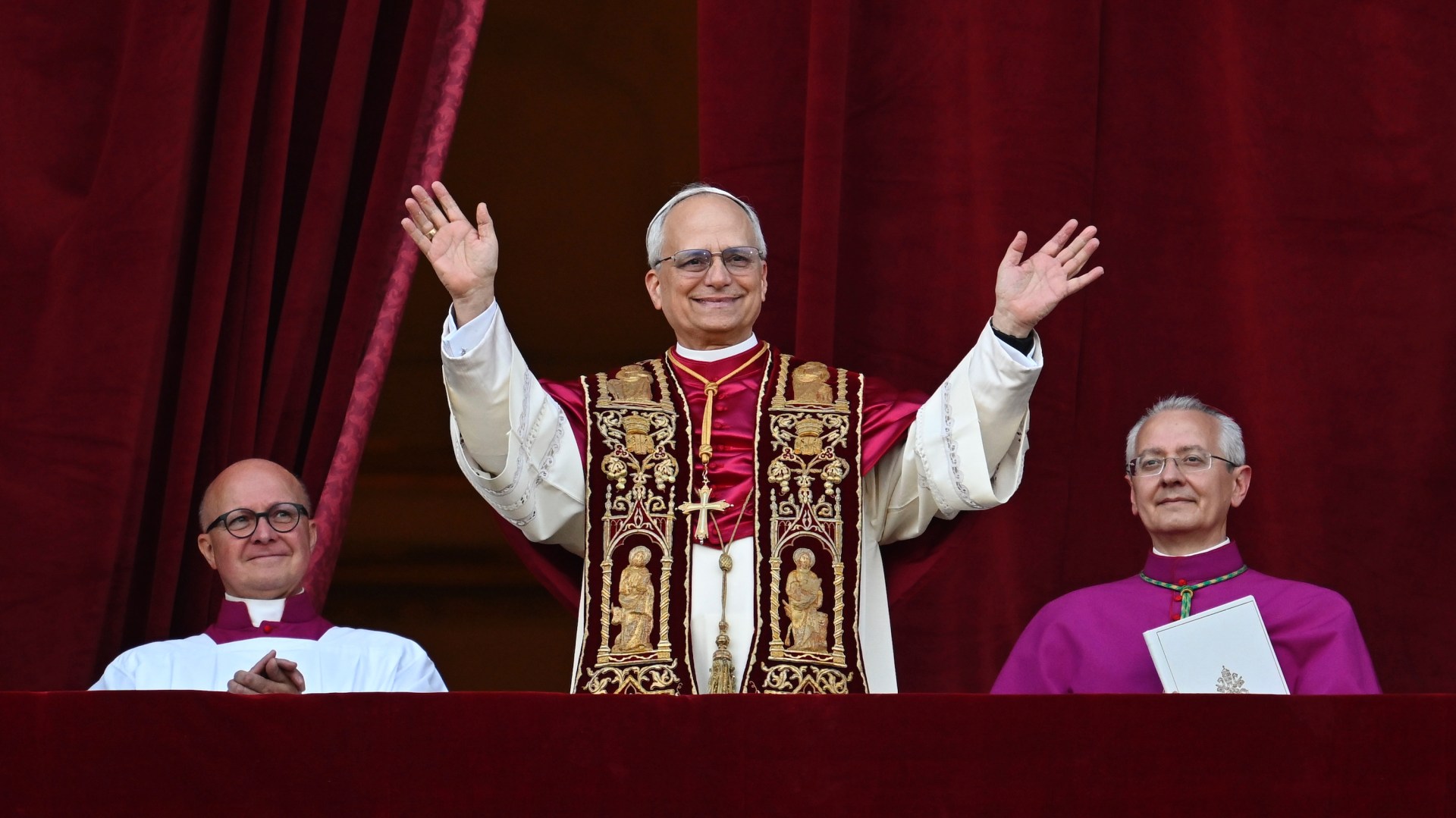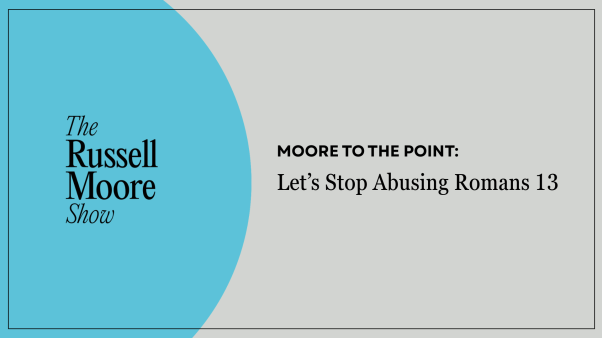A pope from Chicago with citizenship in Peru?
In a Chicago suburb, evangelical faculty at Northern Seminary were excited to claim Leo as a Chicagoan, according to a professor there. Latino evangelicals in the US told Christianity Today they were happy that Pope Leo XIV gave part of his first papal address in Spanish. And in Philadelphia, evangelical leader Shane Claiborne pointed out that the pope went to Villanova University, and therefore has Philadelphia roots too. In Peru, the president celebrated Leo as one of the country’s own.
Evangelicals in all of the Americas were curious about the new pope, with a side of regional pride.
Though they don’t claim him as their church leader, many evangelicals look to see what impact the head of the Roman Catholic Church will have on religious dialogue, global politics, and the world’s understanding of Christian teaching.
The 69-year-old Leo, previously known as Robert Prevost, was born in Chicago, but he has spent most of his adult life as an Augustinian friar outside of the US. He was a missionary in Peru and then promoted to important roles at the Vatican.
Many are celebrating Leo as the first pope from the United States, but it probably makes more sense to emphasize his Latin American experience, according to David Kirkpatrick, a religion historian at James Madison University who has specialized in research on Latin American evangelicalism.
“While Prevost has roots in the United States, from a different lens his election can also be seen as continuity—of another Global South pope following Francis,” Kirkpatrick said. “Far from a papacy that centers the U.S. or those in positions of power, I expect him to continue Francis’ emphasis on the oppressed and marginalized of the world.”
As news of Pope Leo XIV’s elevation spread on Thursday and the world learned more about his life and ministry, many evangelicals were encouraged.
“I appreciate that there is a pope who is familiar with Latin American Christian realities and immigrant realities,” said Gabriel Salguero, the head of the US-based National Latino Evangelical Coalition. “He’s on the record of being pro-immigrant, pro-family, pro-poor, all of those things in our evangelical community where there is common ground.”
Salguero added that the name Leo XIV indicates Leo will follow the example of Leo XIII, who was known for advocating for the working poor in the wake of the Industrial Revolution. Leo XIII chartered the Catholic University of America.
“We’re living in very interesting times,” Salguero added. “We need religious leaders who understand the global interconnectedness.”
Francis, who died on April 21, was the first non-European pope in more than a thousand years. Francis picked Prevost, an Augustinian friar, as his adviser on bishop appointments in 2023.
“This appointment is in line with what Pope Francis did: placing a bishop from the periphery of a peripheral church—like Peru’s—at the heart of the Vatican,” said historian Juan Fonseca, a professor at the Universidad del Pacífico in Lima, Peru.
Before Prevost’s elevation to the Vatican, “he was never part of the upper echelons of the Catholic church,” said Fonseca. “Those are usually Peruvians from the elite who serve in the prestigious episcopal sees like Lima and Arequipa.”
In Peru, where Prevost became a naturalized citizen, he also worked on the margins.
When Prevost first arrived in Peru in 1985, he served briefly in Chulucanas, a desert town of just over 40,000 people near the Ecuadorian border. He left in 1986 to complete his doctoral thesis at the Pontifical College of St. Thomas Aquinas in Rome. Between 1988 and 1999, he held various posts in the northern diocese of Trujillo. In 1999, he returned to his native Chicago, not coming back to South America until 2014.
That year, he was appointed apostolic administrator of the Diocese of Chiclayo, a coastal city of 600,000 in northern Peru, and in 2015 was named its bishop by Pope Francis. In his opening speech as pope before a crowd gathered in St. Peter’s Square, Leo spoke in Spanish to send greetings to his “beloved diocese of Chiclayo.”
“He had a pastoral approach rooted in deep connection with the excluded,” said Rolando Pérez Vela, vice president of the Asociación Evangélica Paz y Esperanza (Peace and Hope Evangelical Association) in Peru. “Leaders—whether Catholic priests or evangelical pastors—who serve in the periphery are more likely to denounce injustice because they see it firsthand, they witness people’s pain.”
Prevost was a member of the Episcopal Commission for Social Action, the Peruvian bishops’ arm for human rights advocacy, grounded in Catholic social teaching.
He took a critical and difficult stand for human rights when he opposed the pardon of Peruvian leader Alberto Fujimori, who was elected in 1992, staged a self-coup the following year, and remained in power until 2000.
Arrested in Chile in 2005 and extradited to Peru, he was sentenced to 25 years in prison. A subsequent president decided to pardon him in 2018, though the Supreme Court overturned the decision a year later.
The now-pope demanded that Fujimori apologize to the Peruvian people, Perez recalled.
“In Latin America, where human rights are often trampled, the churches have a responsibility to embrace a prophetic ministry—one that calls out the crimes of those in power,” Perez said. “They must challenge structural sin, impunity, and abuse of power.”
Leo’s elevation says something important about the ongoing shifts in global Christianity, said Gina Zurlo, a visiting lecturer in world Christianity at Harvard Divinity School.
In 1900, 73 percent of Catholics lived in Europe and North America. Now only 25 percent do; the rest are in the Global South.
Zurlo said in that context, she would expect someone from the Global South to lead the Catholic church. Though most observers weren’t expecting the pope to be someone who also had American connections, American Christianity is also fundamentally global, Zurlo said, because of the large numbers of Christian migrants in the US and the number of Christians going overseas, whether for work, study, or religious mission.
Leo speaks English, Spanish, Italian, French, and Portuguese.
Leo has described himself regularly as a missionary. “I am a missionary; I have been sent,” he told Catholics in Chiclayo in 2003, when he was assigned to the Vatican.
He reiterated that identity in one of the few interviews he gave before becoming pope, telling the Vatican News in 2023, “I still consider myself a missionary.”
In his first papal address, Leo said the Catholic church must be “a missionary church.”
Political leaders in both countries spoke Thursday of what an honor it was to have a man from their country made pope. Peruvian president Dina Boluarte wrote on social media that Prevost’s election “fills our nation with pride and hope,” adding that he “served our people with love and devotion.”
US President Donald Trump said it was a “great honor” to have a pope from the United States.
Leo has a record of criticizing Trump’s immigration policies, but some Trump-supporting evangelicals still welcomed his papacy. Samuel Rodriguez, the head of the National Hispanic Christian Leadership Conference, said Leo’s election was a “watershed moment” and “a reminder that faith is for all people in all places and that the gospel is an invitation to all.”
The new pope has emphasized the importance of invitation. In one interview, he described it as the first task of a Christian leader.
“We are often preoccupied with teaching doctrine,” he said. “We risk forgetting that our first task is to teach what it means to know Jesus Christ and to bear witness to our closeness to the Lord. This comes first: to communicate the beauty of the faith, the beauty and joy of knowing Jesus. It means that we ourselves are living it and sharing this experience.”
That desire to share the gospel resonates with some American evangelicals.
“We’ll still have our disagreements with Rome,” said Matthew Bates, a professor of New Testament at Northern Seminary in the suburbs of Chicago, who has written about Protestants and Catholics finding common theological ground. “But we see this as important for the future of the whole church—seeing Catholics as our brothers and sisters in Christ even if we don’t see [Leo] as our head.”
Catholics and evangelicals already work together on social concerns like the care of immigrants and refugees. Matthew Soerens, the vice president of advocacy and policy at World Relief, said that is a long-standing legacy of the Catholic church.
“As evangelical Christians, we of course have some theological differences, but our biblically rooted concern for the well-being of immigrants is a point of commonality, and we’re eager to continue to partner with our Catholic brothers and sisters as Pope Leo XIV begins his papacy,” he said.
Most observers see Leo as a continuation of the direction set by Francis and are talking about Leo following Francis’ example.
Shane Claiborne from Red Letter Christians gently rejected the idea.
“Francis was radical because of Jesus. He didn’t come up with the washing feet idea, even though he did it for folks in prison,” Claiborne said. “Pope Leo has the same example. The hope is always that the pope is an arrow pointing toward Jesus. … Jesus is the cure to a lot of things that have gotten twisted within Christianity.”











